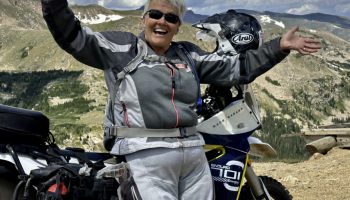Written by Shal Wilson & Edited by Eva Rupert
So, you’ve made the decision to start adventure riding and you’re busy researching what bike to ride and what gear to get, but have you put much thought into training?
There is a lot we can do to reduce the inherent risk of riding motorcycles and avoid crashes, injuries, and fatalities. Remember, just because you got an endorsement, it doesn’t mean you know how to ride a motorcycle well. Your longevity as an adventure rider depends on getting relentless with your ability to put your bike where you want it, when you want it— you will not be able to do that after a 2-day motorcycle course.
More important than any motorcycle farkle or gear choice, training is the cornerstone of successful adventure riding. Information about what to learn and who to learn from is generally hard to find and all-too-often overlooked. So, what are some things to consider when seeking out quality training?
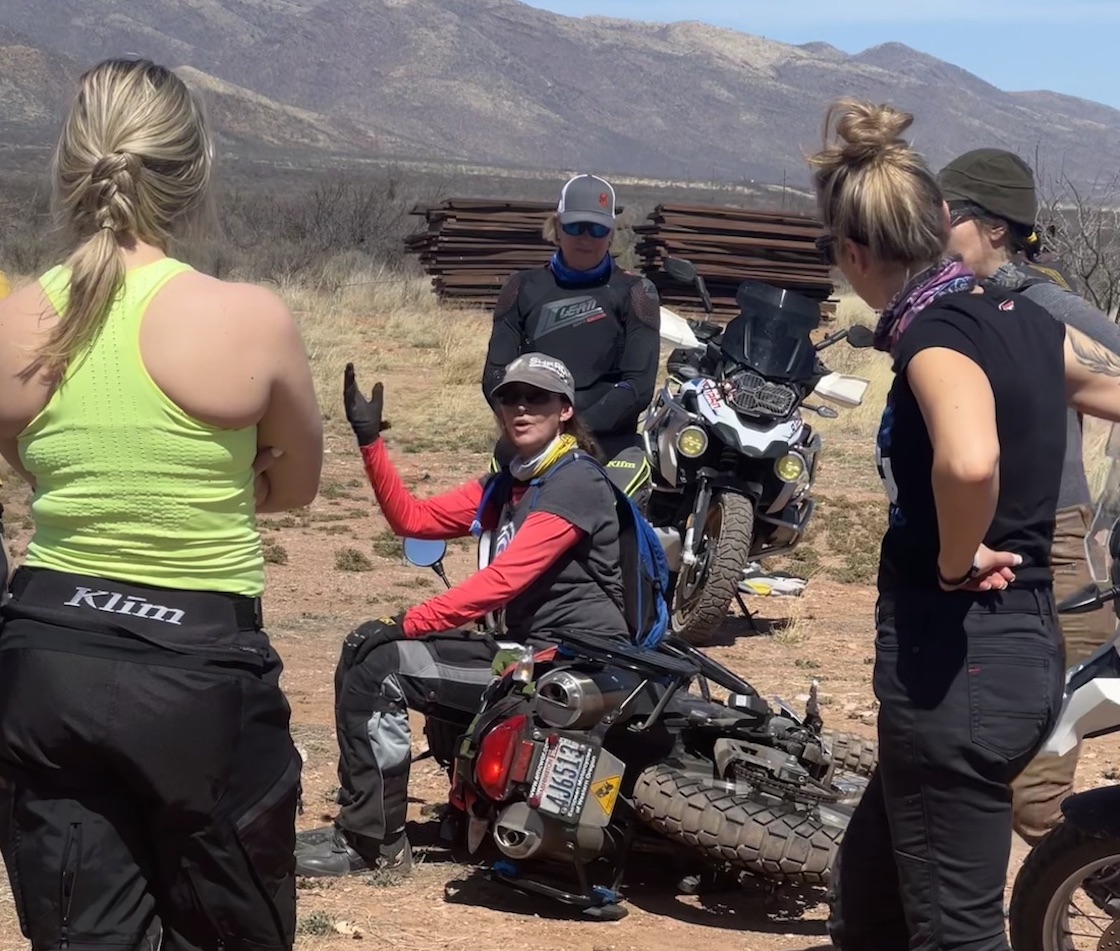
ADV Riding On-Road and Off
You may have it in your mind that your focus is on learning how to ride in the dirt. However, adventure motorcycling is unique in that it involves navigating both on- and off-road terrain. Though you may have your sights set on remote forest roads and backcountry trails, street training is critical to successful adventure riding.
Between off-road and street riding, there are significant differences in technique that you will need to learn to successfully manage your motorcycle in different types of terrain. How you accelerate, brake, and take corners changes because of the dynamic nature of off-road riding. It’s important to practice your skills on both sides of ADV riding because the techniques are very different from one another. You have to flip the switch when you are on the street, then flick it in the other direction when you hit the dirt.
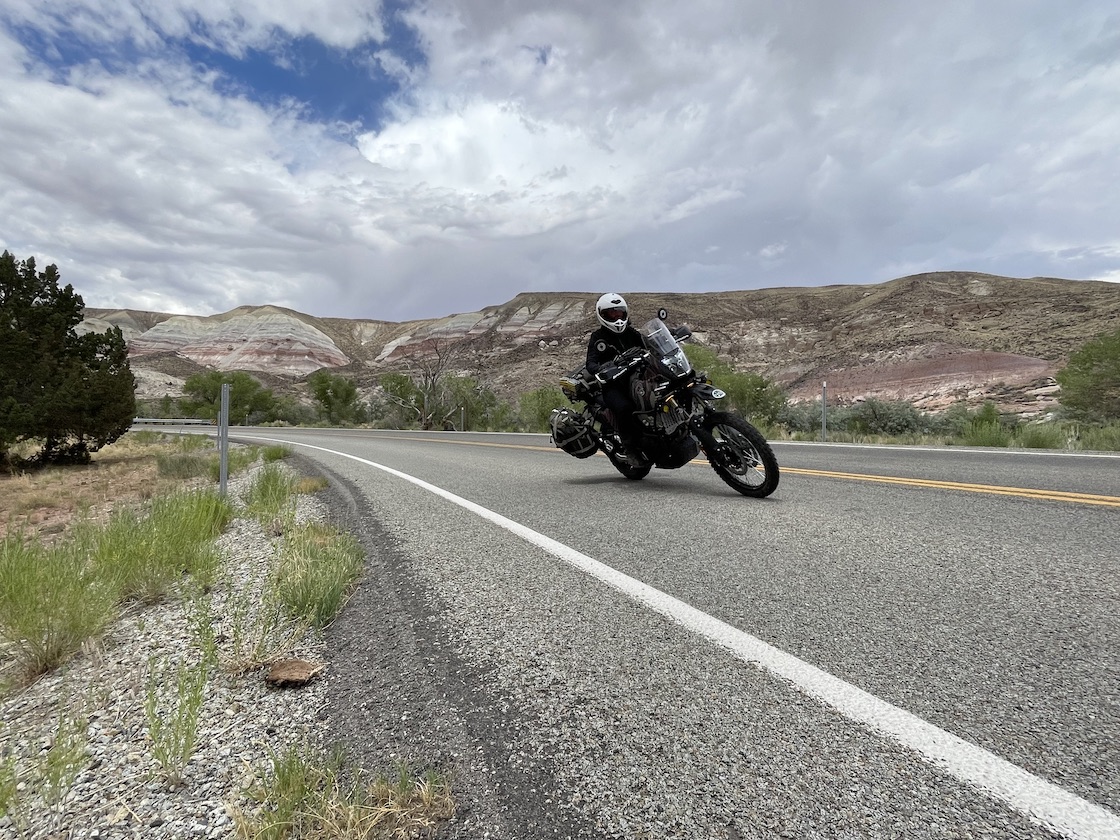
Start with the Basics
No matter how long you’ve been riding, everyone needs the basics, especially if you haven’t had formal training. Even as we rack up more miles on our bikes, the fundamentals remain essential. Seasoned riders sometimes have a hard time signing up for a Level 1 course, but a course that gives you a chance to practice foundational skills is never a waste of time. In fact, experienced riders are always surprised on how much they learn in Level 1 and are always glad that they spent time on the basics. Those who jump in the level 2 without any formal training, always struggle and find themselves frustrated.
Motorcycling is a life-long learning process. Here at SheADV, we encourage you to get feedback on your riding from a professional. That outside perspective helps you improve your skills more quickly. To do that, we recommend that all riders take a training course at least once a year.
Going out riding may give you experience, but it doesn’t necessarily increase your skills. Training increases your chance of participating in this sport for a long time. Practicing the mental and physical skills of motorcycling gives you confidence, lowers your fears, and gives you the ability to have total control of your motorcycle, which increases your FUN FACTOR!
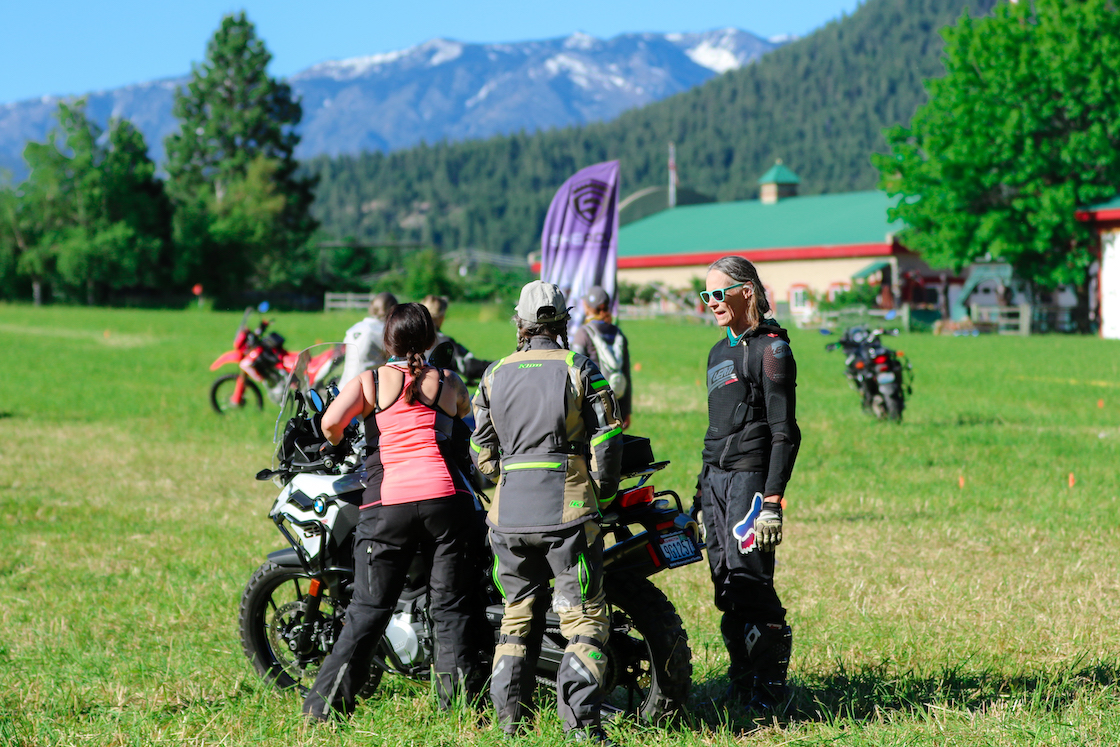
Do Your Homework
Before signing up for training, particularly off-road, do your homework. As you know, there are numerous training courses out there, but not all of them are created equal.
Street safety courses are plentiful and have been around for quite some time. For example, the MSF (Motorcycle Safety Foundation) has been in operation since 1973. It is fairly easy to find a reputable training company with standards for qualifications and certifications for the instructors who are teaching the courses.
Unlike street riding, ADV is fairly new and nationally accredited curriculums are just beginning to develop. MSF now has dirt bike and adventure rider training courses. Other curriculums, like the BMW Performance Center and D.A.R.T. (Dragoo Adventure Rider Training), are also rooted in safety and have a building block format to the curriculum.
But just because a school is certified, it doesn’t mean that you’ll have a quality experience. Even though a school may have a curriculum, it is up to the individual instructors to deliver that information competently and correctly to help you properly learn.

Choose Your Coach Wisely
As you start your research, you’ll want to look for qualified coaches who can teach to your learning style, support your level of experience, and help you meet your riding goals.
Time and time again, we’ve heard about bad experiences from students who have had “instructors” who have no idea how to be “coaches”. But what is the difference between an instructor and a coach? At risk of oversimplifying, instructors know what skills riders need in general. Coaches, on the other hand, are able to know what skill each individual rider needs.
We encourage you to research how creditable the school is before you dish out your hard-earned cash for training. Find out the background of the school and its instructors. Find out what their teaching style is. Are they ex-pro racers, now teaching? What qualifications do they have for coaching? Do they continue to work on their professional development?
Many instructors go through the certification process and that’s where their training ends. They don’t continue refining their skills and developing into good coaches– they remain entry-level instructors, at best. Just as motorcyclists need to continually practice riding skills, motorcycle instructors should continue developing their teaching skills to become qualified, experienced coaches.
Without ongoing practice, anyone learning something new loses a good amount of the information that has been taught (some statistics say as much as 60%). Coaches and riders alike should practice their skills until the information is embedded and becomes second nature.
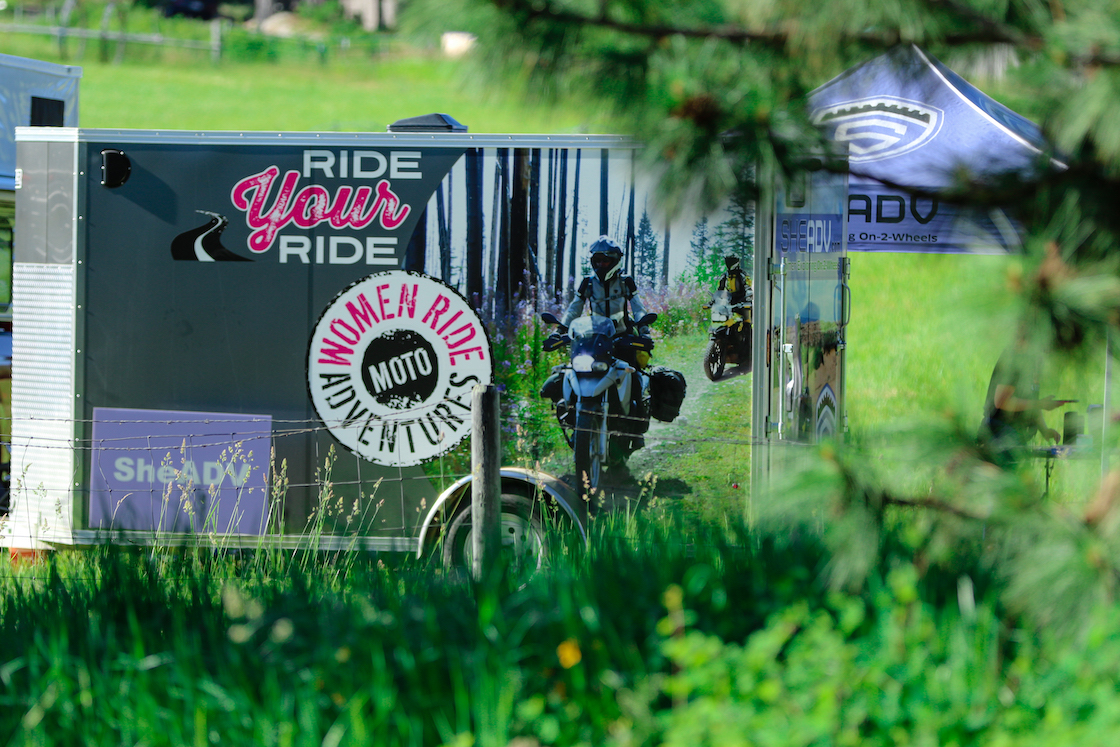
See You on the Trail!
We’re thrilled that you’re pursuing the adventure riding journey and hope you are in it for the long-haul. Remember that building a foundation and developing the skills you need to manage risks and have fun is a slow and steady process. Motorcycling is a life-long learning process and skill development should never end. Ride skilled. Ride well. Ride old. See you on the trail!
